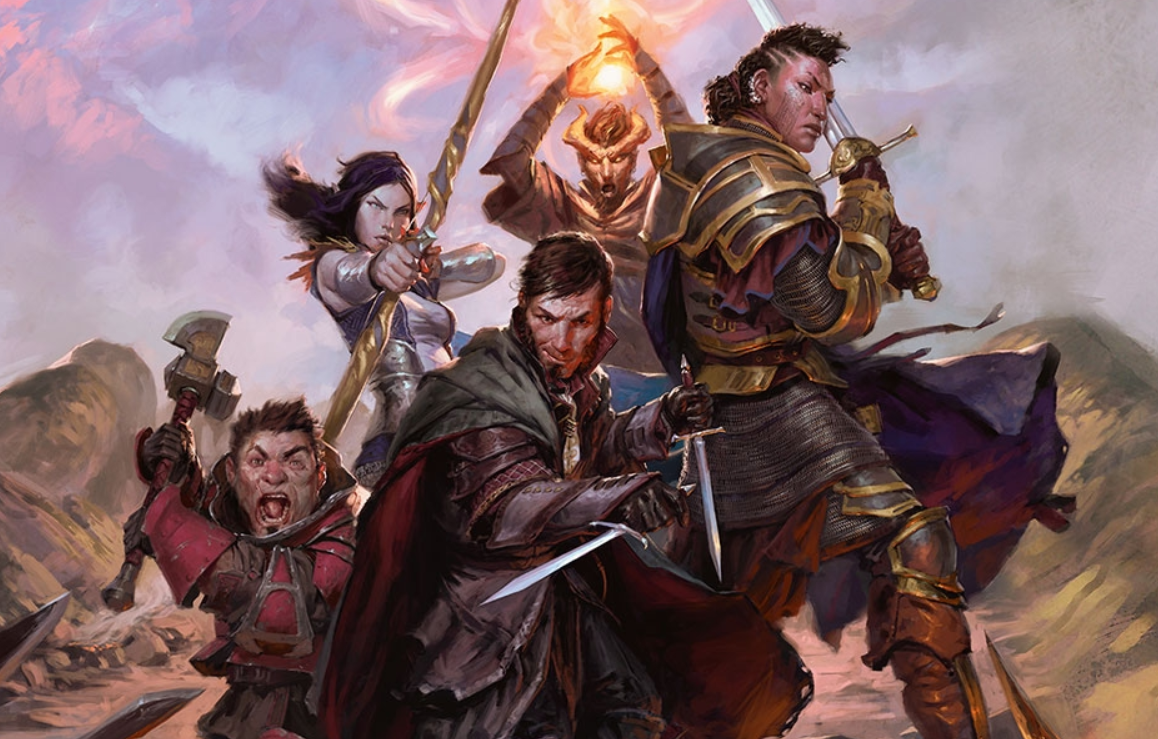A Most Holy Game of Dungeons and Dragons

Dungeons and Dragons has been around for decades, entertaining millions with its rollicking good times and cooperative play. It’s no wonder the game has had such staying power; it’s a lot of fun. But did you know that Dungeons and Dragons can also be a religious experience? In this blog post, we will explore how Dungeons and Dragons can be used as a tool for religious exploration and connection. We will also touch on some of the theological implications of the game and how it can be used to facilitate deep conversations about faith.
What is Dungeons and Dragons?
Dungeons and Dragons (D&D) is a popular role-playing game (RPG) that has been around since the 1970s. In D&D, players take on the roles of fictional characters in a fantasy world and use their imaginations to explore that world.
D&D is more than just a game, though. It’s a community where people can come together and create stories. It’s a way to have fun and relieve stress. And it’s a way to bond with friends and family.
Whether you’re new to D&D or you’ve been playing for years, there’s always something new to learn. So what are you waiting for? Grab some dice and give it a try!
The Different Types of D&D Players
There are many different types of players that enjoy Dungeons and Dragons. Some love the challenge of delving into dark dungeons, others enjoy the opportunity to role-play their favorite fantasy characters, and still others just like to roll dice and kill monsters. Whatever your reason for playing, there is a type of player out there for you.
Here are some of the different types of Dungeons and Dragons players:
The Role-Player: For many, Dungeons and Dragons is all about the role-playing. These players take on the persona of their characters, becoming them in every way possible. They love to immerse themselves in the world of the game, and often spend hours creating backstories for their characters. If you’re looking for a deep and rich role-playing experience, then this is the type of player for you.
The Tactician: To these players, Dungeons and Dragons is all about winning. They carefully plan each move their characters make, always striving to come out on top. If you’re looking for a challenging game where victory is always the goal, then playing with a tactician is sure to give you what you’re looking for.
The Casual Player: For some people, playing Dungeons and Dragons is simply about having fun. These players don’t take the game too seriously, and are just in it for a good time. If you’re looking for an easygoing game where everyone can just relax and have fun, then playing with a casual player
Pros and Cons of Playing D&D
Dungeons and Dragons is a popular game that has been around for decades. It is a role-playing game where players take on the role of characters in a fantasy world. The game is designed to be cooperative, with players working together to defeat monsters and complete quests.
There are many advantages to playing Dungeons and Dragons. The game promotes imagination and creativity, as players have to come up with their own characters and story lines. It also encourages strategic thinking and problem solving. Players learn how to cooperate and work together as a team. In addition, the game can be very social, helping people make new friends and connections.
However, there are also some disadvantages to playing Dungeons and Dragons. The game can be very time consuming, sometimes taking up several hours per session. It can also be expensive, as players need to purchase books, dice, and other materials. Some people find the game confusing or difficult to understand. Finally, like any form of entertainment, it is possible to get addicted or obsessed with the game, leading to negative consequences such as neglecting real-life responsibilities.
What to Expect When Playing D&D?
When playing Dungeons and Dragons, players can expect to use their imaginations to create characters and go on adventures in fantastical worlds. The game is role-playing, meaning players take on the roles of their characters and make decisions that determine the course of the story. Players will also need to be able to work together as a team to overcome obstacles and defeat enemies.
D&D Tips for Beginners
Whether you’re a seasoned pro or just starting out, Dungeons & Dragons is a complex and rewarding game. Here are a few tips to help you get the most out of your experience:
1. Understand the basics. Before you jump into a game, it’s important to understand the basics of how it works. Read through the rulebooks or watch some tutorial videos to get a feel for what you’ll be doing.
2. Find the right group. Not all groups are created equal – some are more serious and others are more laid-back. Make sure you find a group that’s compatible with your playstyle.
3. Create a compelling character. Your character is your avatar in the game, so put some thought into who they are and what motivates them. A well-rounded character will be more interesting to play and easier to relate to.
4. Take advantage of resources. There are tons of resources available for D&D players, whether it’s online forums, books, or even video games. Use them to supplement your experience and make the game more enjoyable for everyone involved.
5. Have fun! At the end of the day, Dungeons & Dragons is meant to be enjoyed by everyone involved. So relax, let loose, and enjoy yourself!
Alternatives to Dungeons and Dragons
If you’re looking for something different than Dungeons and Dragons, there are plenty of great options out there. Here are just a few:
Pathfinder: Pathfinder is a popular RPG that uses many of the same mechanics as D&D. It’s set in a medieval fantasy world and has a strong emphasis on teamwork and strategic gameplay.
Mage: The Ascension: Mage is a unique RPG that focuses on magic and the struggle between order and chaos. It features an open-ended setting where players can create their own stories.
Shadowrun: Shadowrun is a cyberpunk RPG that combines magic and technology. It’s fast-paced and action-packed, with plenty of opportunities for customization.
There are tons of other great RPGs out there, so don’t be afraid to explore!
Conclusion
Dungeons and Dragons is a classic tabletop role-playing game that has enthralled players for decades. In this article, we took a look at how the game can be used as a tool for religious education. We hope you found it insightful and that it has inspired you to try out the game for yourself. Thanks for reading!




